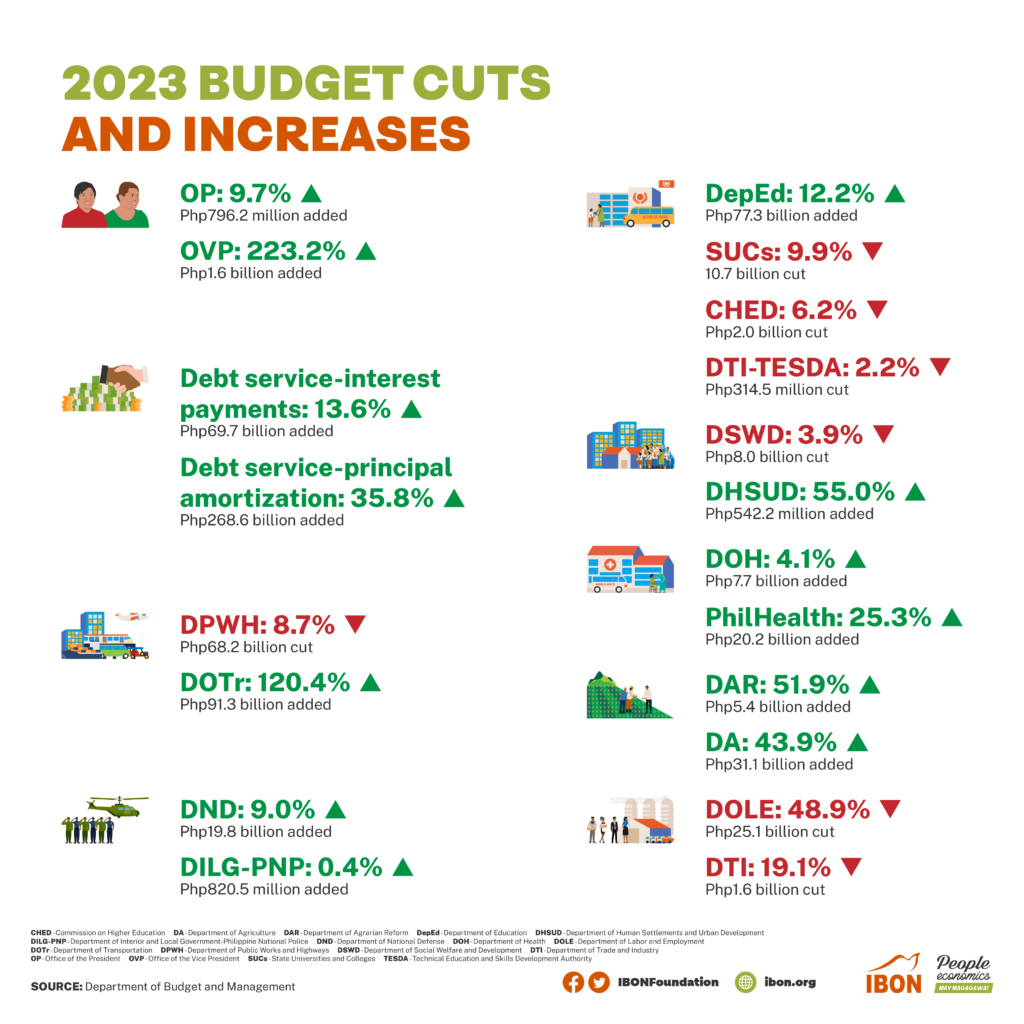Reduced Library Services: The Fallout From Recent Budget Cuts

Table of Contents
Impact on Access to Information and Resources
The immediate and most palpable effect of reduced library funding is diminished access to vital information and resources. This manifests in several crucial ways:
Reduced Operating Hours
Shorter opening hours severely limit access for many segments of the population.
- Fewer hours available: Libraries, traditionally open long hours to accommodate diverse schedules, now operate with significantly reduced hours, making it difficult for working individuals, students, and the elderly to utilize services.
- Increased wait times: The fewer hours available lead to overcrowding during peak times, resulting in frustratingly long wait times for computers and assistance.
- Inability to access resources outside of limited hours: Many rely on libraries for after-hours access to resources, and these limited hours prevent them from utilizing essential services, such as computer labs for job searching or online coursework. Many after-school programs have been cancelled due to the reduced hours. Limited access to computers hinders job searches for many community members.
Fewer Staff and Reduced Services
Staff cuts directly translate to reduced services across the board.
- Longer wait times for assistance: With fewer librarians and support staff, patrons face significantly longer wait times for assistance with research, technology, or other library services.
- Fewer library programs for children and adults: Story times, book clubs, author events, workshops, and other vital programs are often the first to be cut, impacting community engagement and educational opportunities.
- Reduced availability of specialized assistance: Specialized services, such as technology help for seniors, assistance with accessing government resources, or specialized research help, are often significantly curtailed, leaving vulnerable populations underserved.
Limited Collection Sizes
Budget constraints inevitably lead to reductions in the library's collection.
- Less diverse collection: Fewer funds mean less money for purchasing new books, journals, and other materials, leading to a less diverse and less up-to-date collection.
- Longer wait times for popular items: Reduced acquisitions mean longer wait times for popular items, frustrating patrons and limiting access to current information and bestsellers.
- Inability to meet community needs: Libraries strive to meet the specific needs of their communities. Budget cuts hinder this ability, resulting in gaps in the collection and an inability to provide essential resources.
- Potential for weeding out valuable materials: To make space for new acquisitions (even with limited funds), libraries may be forced to weed out valuable older materials, potentially losing irreplaceable resources.
Consequences for the Community
The consequences of reduced library services extend far beyond the library walls, impacting the entire community in significant ways.
Impact on Literacy and Education
Libraries play a critical role in fostering literacy and education. Reduced services severely undermine these efforts.
- Reduced access to literacy programs: Programs designed to promote early literacy in children are frequently cut, hindering children's reading development and future academic success.
- Fewer resources for homework help: Reduced staff and resources limit the library's capacity to provide homework help and tutoring services, disadvantaging students who rely on these crucial supports.
- Less access to educational materials: A smaller and less diverse collection means less access to educational materials for both children and adults, limiting learning opportunities.
Economic Disadvantage
Libraries serve as essential hubs for economic advancement. Limited services exacerbate economic inequality.
- Reduced job search capabilities: Reduced access to computers, internet, and job search resources directly impacts employment opportunities for many individuals.
- Fewer opportunities for online learning and skill development: Libraries offer essential online learning resources and skill-building workshops. These opportunities are significantly reduced by budget cuts.
- Exacerbation of the digital divide: Limited access to computers and the internet widens the digital divide, further marginalizing communities already lacking access to technology.
Social Isolation and Community Impact
Libraries act as community hubs, fostering social interaction and connection. Reduced services increase social isolation.
- Fewer community events: Budget cuts often lead to the cancellation of community events, such as author talks, film screenings, and workshops, reducing social interaction and a sense of community.
- Less access to social interaction: Libraries provide a safe and welcoming space for social interaction, especially for vulnerable populations. Reduced services lead to diminished access to this important social support.
- Negative impact on vulnerable populations: The elderly, people with disabilities, and low-income individuals are disproportionately impacted by reduced library services, exacerbating existing inequalities and isolation.
Potential Solutions and Advocacy
Addressing the issue of reduced library services requires proactive measures and community engagement.
Community Advocacy and Engagement
Advocating for increased library funding is paramount.
- Contacting local representatives: Reach out to your local council members, state representatives, and other elected officials to express your concerns and advocate for increased library funding.
- Organizing community petitions: Gather signatures from community members to demonstrate widespread support for increased library funding and improved services.
- Raising awareness of the importance of library services: Educate your community about the vital role libraries play in providing essential services and fostering community well-being.
Exploring Alternative Funding Streams
Diversifying funding sources can help alleviate budget constraints.
- Crowdfunding campaigns: Launch online crowdfunding campaigns to raise funds for specific library programs or projects.
- Grant applications: Explore potential grant opportunities from foundations, corporations, and government agencies to secure funding for library initiatives.
- Fundraising events: Organize fundraising events, such as book sales, bake sales, or community concerts, to raise money for the library.
- Community partnerships: Collaborate with local businesses and organizations to secure sponsorships or in-kind donations to support library programs and services.
Increased Efficiency and Resource Management
Optimizing resource allocation within the library system can improve efficiency.
- Implementing cost-saving measures: Explore opportunities to reduce costs without compromising essential services, such as consolidating resources, negotiating better deals with vendors, or transitioning to more energy-efficient technologies.
- Optimizing staffing: Review staffing levels to ensure efficient allocation of personnel and explore opportunities for cross-training and task sharing.
- Exploring shared services with other institutions: Collaborate with other local institutions, such as schools or community centers, to share resources and services, reducing overall costs.
Conclusion
Reduced library services, a direct consequence of insufficient funding, have profound and far-reaching negative impacts on our communities. From limiting access to vital information and resources to exacerbating social isolation and economic inequality, the consequences are significant and demand immediate attention. Don't let reduced library services diminish our community. Contact your local representatives and advocate for increased library funding today! Support your library and help preserve vital community resources. Let's work together to ensure that our libraries remain vibrant centers of learning, opportunity, and community engagement.

Featured Posts
-
 April 11 Nyt Connections Puzzle 670 Hints Solutions And Strategies
May 19, 2025
April 11 Nyt Connections Puzzle 670 Hints Solutions And Strategies
May 19, 2025 -
 Fuerzas Armadas Militarizan Sesion Del Cne Un Analisis De La Situacion
May 19, 2025
Fuerzas Armadas Militarizan Sesion Del Cne Un Analisis De La Situacion
May 19, 2025 -
 Eurovision Belgium Leslie Cable Passes Torch To Michael De Lil In 2026
May 19, 2025
Eurovision Belgium Leslie Cable Passes Torch To Michael De Lil In 2026
May 19, 2025 -
 Mets Missed Call Leads To Walk Off Loss A Costly Misplay
May 19, 2025
Mets Missed Call Leads To Walk Off Loss A Costly Misplay
May 19, 2025 -
 Rylance Fights To Prevent London Parks Transformation Into A Prison Camp Music Venue
May 19, 2025
Rylance Fights To Prevent London Parks Transformation Into A Prison Camp Music Venue
May 19, 2025
